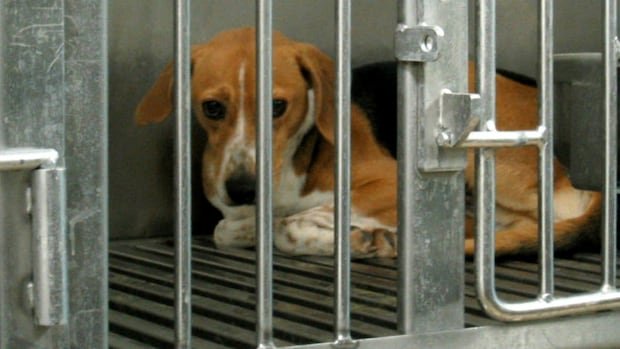Premier Doug Ford has issued a stern warning to Ontario scientists conducting research experiments on cats and dogs, vowing to take action to halt such practices. He expressed strong disapproval of using beagles in cardiac testing sanctioned by London’s Lawson Research Institute and St. Joseph’s Health Care London, and pledged to enact legislation prohibiting testing on specific animals.
During a press conference in Windsor, Ford empathized with the plight of beagles, stating, “I understand the mice, the rats, you know, maybe a rabbit, but these poor little beagles — you just look at their faces.” His remarks were prompted by an investigative article by the Investigative Journalism Bureau at the University of Toronto’s Dalla Lana School of Public Health that disclosed the prolonged use of dogs in heart studies.
The uncovered research involved inducing three-hour heart attacks in dogs and puppies, followed by euthanization and organ extraction for further analysis. Ford declared his intent to identify and halt any ongoing dog or cat research, emphasizing the cruelty and inhumanity of such experiments.
The secrecy surrounding the research was lifted following public exposure, leading St. Joseph’s Health Care London to announce the immediate cessation of dog-related studies. Despite requests, the hospital declined interviews with CBC News.
In response to queries about his involvement in terminating the cardiac testing, Ford remained silent. However, his statements at the press conference strongly suggested his proactive role in advocating against animal testing. The Premier affirmed, “If you’re doing this with dogs or cats, you gotta stop before I catch you. Simple as that. We’re going to legislate this. You aren’t gonna be going after animals like that.”
The Canadian Council on Animal Care reported that 16,151 dogs were utilized in scientific research in 2023, guided by the principles of Replacement, Reduction, and Refinement. These principles prioritize exploring alternative methods, minimizing animal usage, and ensuring comfort and pain relief during experiments.
Charu Chandrasekera, Executive Director of the Canadian Centre for Alternatives to Animal Methods, commended Ford’s stance, emphasizing the need for comprehensive legislation regulating animal research practices. She highlighted the absence of federal laws safeguarding animals in scientific studies and urged for a shift towards animal-free research methodologies.
The University Health Network (UHN) in Toronto affirmed its adherence to stringent ethical standards in animal research, emphasizing the pivotal role animals have played in medical advancements while pledging to explore alternatives to reduce and replace animal testing wherever feasible.

